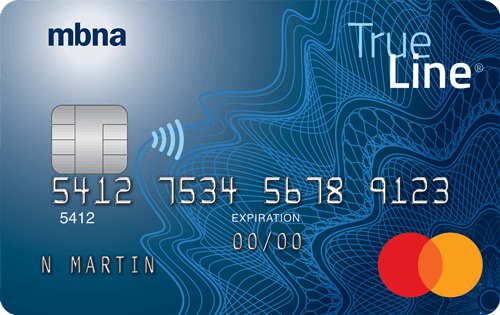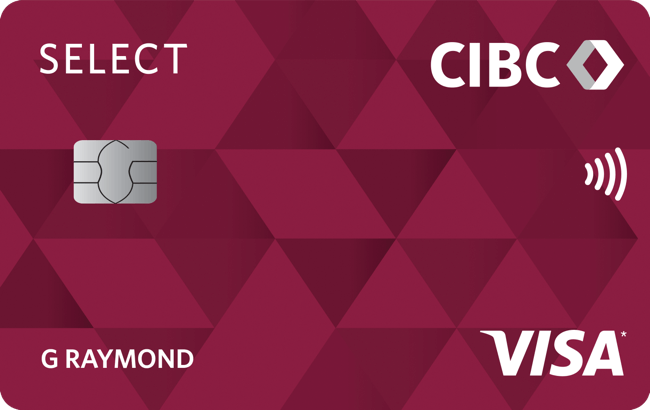Featured credit cards

MBNA True Line Mastercard credit card

CIBC Select Visa Card

Scotiabank Momentum No-Fee VISA Card
MoneySense is an award-winning magazine, helping Canadians navigate money matters since 1999. Our editorial team of trained journalists works closely with leading personal finance experts in Canada. To help you find the best financial products, we compare the offerings of major institutions, including banks, credit unions and card issuers. Learn more about our advertising and trusted partners.
Compare popular balance transfer credit cards
Compare your options with our interactive tool and get a sense of how much you could save on interest depending on the size of your balance.
Best balance transfer credit cards in Canada
These are the best balance transfer credit cards in Canada, as chosen by MoneySense editors. We compared the details that matter most to Canadians who want to save on credit card interest costs, namely the interest rate and length of balance transfer promotions, and balance transfer fees. Our rankings are an unbiased source of information for Canadians. The addition of links from affiliate partners has no bearing on the results. Read more about our selection process and about how MoneySense makes money.
Gold: MBNA True Line Mastercard
At a glance: With a 0% balance transfer rate for a full year, the MBNA True Line Mastercard offers a lot of runway to bring down your debt. This card doesn’t charge an annual fee, which is another advantage if you’re working to pay off an existing balance.
MBNA True Line Mastercard
Annual fee: $0
Balance transfer offer: Receive a 0% interest rate for 12 months on balance transfers completed within 90 days. (Offer not available for residents of Quebec.)
Card details
| Interest rates | 12.99% on purchases, 24.99% on cash advances, 17.99% on balance transfers |
| Income required | None specified |
| Credit score | 660 or higher |
Pros
- No annual fee: Get a balance transfer promotion without a fee—a rarity among balance transfer cards.
- Great balance transfer offer: The 0% promotional rate lasts an entire year, the longest offer period of any card on this list. Get up to 90 days to complete the transfer after opening the account, while many cards require you to transfer your balance right away.
- Pay in installments: With MBNA’s Monthly Payment Plan, reduce interest on large purchases of $100 or more by breaking payments into smaller chunks over longer periods.
- Low interest rates: The regular rates of 17.99% on balance transfers and 12.99% on purchases are much lower than industry standards.
Cons
- High balance transfer fee: The 3% fee ($30 per $1,000 transferred) is higher than the other cards on this list.
- High APR on cash advances: Though its other rates are low, this card charges 24.99% interest on cash advances.
Silver: CIBC Select Visa Card
At a glance: The CIBC Select Visa Card offers an attractive 13.99% interest rate, even on cash advances, and it has a 10-month balance transfer offer of 0% interest and a low 1% balance transfer fee.
CIBC Select Visa
Annual fee: $29 (rebated for the first two years)
Balance transfer offer: Receive a 0% interest rate for up to 10 months on balance transfers of $100 or more and a two-year annual fee rebate.
Card details
| Interest rates | 13.99% on purchases, 13.99% on cash advances, 13.99% on balance transfers |
| Income required | $15,000 per year |
| Credit score | 660 or higher |
Pros
- Low balance transfer fee: The 1% fee ($10 per $1,000 transferred) is the lowest on this list. The transfer fee savings on large balances may be worth the annual fee.
- Low interest rates: The regular APR of 13.99% on purchases, cash advances and balance transfers is much lower than industry standards.
- Gas savings: Link your card with Journie Rewards to save up to $0.10 per litre at participating Pioneer, Fas Gas, Ultramar and Chevron gas stations.
Cons
- Balance transfer limit: The balance you transfer cannot exceed 50% of your total approved credit limit, which may be restricting for large balances.
Bronze: Scotia Momentum No-Fee Visa
At a glance: The Scotia Momentum No-Fee Visa also comes with a 0% introductory interest rate on balance transfers. It has a shorter promo period of just six months, but the benefit of no annual fee after your first year could make this card the better choice for some cardholders.
Scotia Momentum No-Fee Visa Card
Annual fee: $0
- 1% cash back at gas stations, grocery stores, drug stores and recurring bills
- 0.5% on everything else
Welcome offer: Earn 5% cash back for the first 3 months (up to $2,000 in total purchases). Plus, pay 0% interest on balance transfers for the first 6 months. Offer ends June 30, 2025.
Card details
| Interest rates | 19.99% on purchases, 22.99% on cash advances, 22.99% on balance transfers |
| Income required | $12,000 per year |
| Credit score | 725 or higher |
Pros
- Introductory interest rate: Like other top balance transfer cards, this one comes with an introductory interest rate of 0%.
- Cash back rewards: Balance transfer cards don’t typically offer perks and benefits. With this one, you’ll earn decent cash back rewards.
Cons
- Shorter balance transfer promo: The promotion is for 6 months, which is half of the length of the best available offer.
- Standard APRs: The regular interest rates on purchases, cash advances and balance transfers are fairly standard. Some balance transfer cards offer more competitive regular interest rates.
How balance transfer cards and promos stack up
View the most important details at a glance and see for yourself why our picks are the best cards for balance transfers in Canada right now.
| Balance transfer offer | Transfer fee | Annual fee | Regular interest rates | Annual income requirements | Credit score requirements | |
|---|---|---|---|---|---|---|
| MBNA True Line Mastercard | 0% interest for 12 months | 3% of balance transferred | $0 | 12.99% on purchases 24.99% on cash advances 17.99% on balance transfers | None specified | 660 or higher |
| CIBC Select Visa | 0% interest for up to 10 months | 1% of balance transferred | $29 (rebated for the first two years) | 13.99% on purchases 13.99% on cash advances 13.99% on balance transfers | $15,000 | 660 or higher |
| Scotia Momentum No-Fee Visa | 0% interest for 6 months | 2% of balance transferred | $0 | 19.99% on purchases 22.99% on cash advances 22.99% on balance transfers | $12,000 | 660 or higher |
| Scotiabank Value Visa | 0.99% interest for 9 months | 2% of balance transferred | $29 (waived first year) | 13.99% on purchases 13.99% on cash advances 13.99% on balance transfers | $12,000 | 725 or higher |
| BMO Preferred Rate Mastercard | 0.99% interest for 9 months | 2% of balance transferred | $29 | 13.99% on purchases 15.99% on cash advances 15.99% on balance transfers | $15,000 | 660 or higher |
What is a balance transfer?
A balance transfer is the transfer of debt from one credit card to another. Although a cardholder can transfer their debt for a variety of reasons, the goal is usually to cut down on the amount of interest charged and to pay off the loan faster.
As most everyday-use credit cards command an interest rate of around 20%, your principal debt load can bloat quickly. By transferring debt to a card with a lower interest rate, you’ll incur lower interest charges—so more of your money goes to the principal balance.
How does a balance transfer work?
A balance transfer can help you save on interest charges by moving your credit card balance to another card with a lower interest rate. To demonstrate how credit card balance transfers work, let’s compare the interest charged on an outstanding credit card balance over time.
Let’s say you have a credit card with a balance of $4,000 and a 20.99% annual interest rate. Every month, you make a $400 bill payment. Should you stick with paying down the balance on your existing card or transfer the balance to a balance transfer card with a lower interest rate? For this example, we’ll use the MBNA True Line Mastercard, which comes with a 0% promotional interest rate for 12 months and a 3% transfer fee.
| Regular credit card | Balance transfer credit card | |
| Initial credit card balance | $4,000 | $4,000 |
| Purchase interest rate | 20.99% | 0% for 1 year |
| Monthly payment | $400 | $400 |
| Balance transfer fee | N/A | $120 (3% of your initial balance) |
| Months required to pay off balance | 12 | 10 |
| Total interest paid over time | $435.20 | $0 |
| Total cost | $435.20 | $120 |
In this case, you’d save $315.20 in interest ($435 – $120) and pay off your debt two months faster by transferring the balance to the MBNA balance transfer credit card in the example above.
One thing to consider is the fee associated with the transfer, which can range from 1-3% of the total balance you are transferring to another card. The fee might be small compared to the interest charges you are paying, if you have a high balance on your credit card.
If you have a relatively small amount on your card, like $1,500, but you notice you are constantly carrying a balance and paying interest charges, consider swapping out your card for a low-interest credit card with your existing bank, or applying for a new card at another financial institution instead. That way, you won’t pay a balance transfer fee or additional interest on the balance (until the balance transfer promotion period ends, so make sure to pay it off before then). Some card issuers will even rebate or waive your new card’s annual fee for the first year.
If you switch to another card with your current bank, you can generally have the lower interest rate applied to your existing balance and reduce your total interest charges. Keep in mind that if your balance represents a large amount of your available credit on the new card, too, and your utilization ratio creeps above 30%, it may be worthwhile to look into a balance transfer credit card. This is because balance transfers usually only affect your credit score in the short term, and reducing your credit utilization ratio can be beneficial for your score in the medium to long term.
Example of how a balance transfer works with a small balance
| Regular credit card | Balance transfer credit card | |
| Credit card balance | $1,500 | $1,500 |
| Purchase interest rate | 20.99% | 0% for 1 year |
| Monthly payments | $200 | $200 |
| Balance transfer fee | N/A | $45 (3% of your initial balance) |
| Months required to pay off balance | 9 | 8 |
| Total interest paid over time | $121.96 | $0 |
| Total cost | $121.96 | $45 |
In this example, you’d save $76, and it would only take one less month to pay off your balance, so it may not make sense to use a balance transfer.
How to do a credit card balance transfer
Balance transfers can be an effective way to consolidate and address debt. There are seven things to consider before you apply for a balance transfer card.
- Shop around for the rate, timing and terms that suit you best
If you’re trying to eliminate credit card debt, your best bet might be a balance transfer credit card. These cards come with promotions that let cardholders pay very low interest (sometimes as little as 0%) for a limited time (like six or 10 months). These offers can be a really effective way to bring down your debt fast, if you are disciplined about making regular payments and are not racking up a lot of new purchases. The card you choose will depend largely on what’s available when you’re looking, how long you think you’ll need to pay off your debt, and the card’s other terms. - Make sure you’re eligible for the balance transfer
Balance transfer promotions are only valid when moving debt from a credit card at one bank to a card at another bank. It will not work between two cards from the same bank. - Timing is everything
Balance transfer promotions are available at the time that you make your application or sometimes shortly thereafter. Be strategic about when you apply, and make sure you’re prepared to make the transfer. That means having the credit card company name, your name as it appears on the card, the debt total and the credit card number. - Remember that balance transfer promotions don’t last forever
The low, single-digit rates available on balance transfer credit cards are limited-time offers. Once the promotional period is over, the cards’ regular interest rates will kick in, which will affect your monthly payments. How you handle this will depend on the amount of debt you have and how quickly you plan to pay it off. But, in general, the best strategies include paying off the balance before the balance transfer offer ends and picking a card with a low regular interest rate. This way, you’ll save money on interest even if you still owe after the offer period. - Make your minimum payments
Even when taking advantage of a balance transfer offer, you must make at least the minimum payment on the card, on time, each month. If you don’t, that super-low promotional interest rate can quickly be discontinued and the standard interest rate will kick in almost immediately. In other words, only take advantage of a balance transfer offer if you have the cash on hand to make at least the minimum payment each month and you’re in the right financial mindset to take on debt repayment. - Balance transfer fees
Some—but not all—cards charge a fee for balance transfers. This fee is expressed as a percentage of the total amount you want to move, and it usually ranges from 1% to 3%. So, for example, if you’re looking to transfer $1,000 in debt to a card with a 3% fee, your opening balance will be $1,030. The additional cost may well be worth the money you’ll save at the new lower interest rate. But keep your eyes open for fee deals: Occasionally, a card will run a promotion where the balance transfer fee is waived. - Separate your expenses
If you charge a new purchase to your balance transfer credit card, this spend will be charged at the card’s regular interest rate if you don’t pay on time, not the promotional rate that’s applied to the balance you’ve transferred. This might not seem like a big deal, especially if you’ve been lucky enough to find a card with a lower regular rate, but there’s an additional catch: Most credit cards apply payments to debt marked at the low or promotional rate first, which means your high-interest purchases are sitting there longer, racking up interest. If you’re trying to pay down debt, this only compounds the problem. It’s good practice to leave your balance transfer card at home and use a different financial product (like debit, cash or even a different credit card) for new purchases.
Do you earn cash back on balance transfers?
Like cash advances or purchases of money orders, balance transfers are not considered to be purchases, so in general, they’re not eligible for cash back rewards. There may be some rare exceptions with certain promotional offers, but these are few and far between. That said, the interest saved by moving your debt to a card with a lower interest rate will far outweigh the value of most cash back returns.
How does a balance transfer credit card impact my credit score?
When you apply for any credit card, you receive a hard credit inquiry that can temporarily bring your credit score down a few points. This includes balance transfer cards. However, this is not a reason to avoid applying.
If you’re looking into a balance transfer credit card, it’s likely because you’ve got some outstanding credit card debt. Moving that debt in order to reduce it will have a positive, lasting impact on your credit score in the medium to long term.
The lower interest rate means more of your money goes to paying down the balance, so you can reduce your debt load faster. A smaller debt load can improve your credit score because it lowers your credit utilization—a major credit score factor that measures the ratio between the balance and the total credit limit. Say you owe $600 on a credit card with a limit of $2,000. Your credit utilization would be 30%. Having a credit utilization score of 30% or lower is considered good.
When you consider everything, the damage your debt load does to your credit score far outweighs the small and temporary effect on your credit score caused by a credit card application. When it comes to debt, always look for the longer-term solution.


